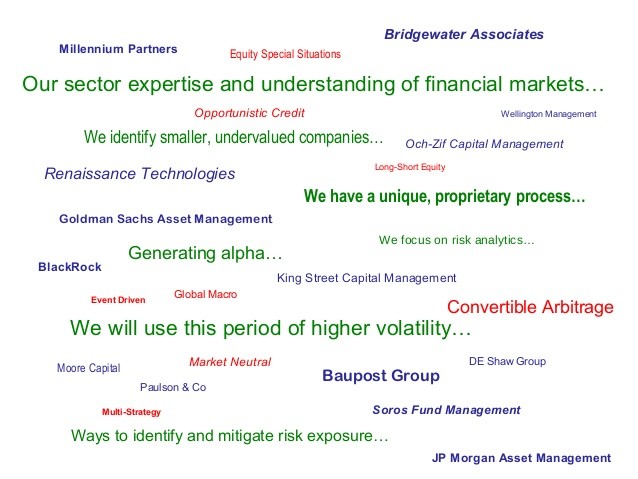Can Strategic Volatility Help Family Offices
Post on: 17 Май, 2015 No Comment

By Don Dale
Traditionally, volatility has been an area that family offices, pension funds and endowments have approached by diversifying across and within asset classes. Oftentimes, their portfolios are comprised of a mix of stocks and bonds with a reserve cash component for liquidity. This article makes the case that volatility products can be a valuable addition to a portfolio, one that can help family offices improve their cash management.
Some managers have recently added small exposure to non-correlated alternative investments, but rather than diversify their holdings, they have discovered that these alternative investments are often more correlated than they had expected. Faced with the challenge of achieving greater diversification, innovative risk control groups and portfolio management departments are studying how volatility products can help them achieve their goals.
Exceptional efforts by global central banks to stimulate growth by supporting asset prices (primarily equities and real estate) have rendered traditional diversification approaches far less effective. Cash and cash-like equivalents can be used as limited liquidity tools, but generate no substantial yield when interest rates remain so low for such a long period.
Volatility, properly harnessed, is a much more effective liquidity buffer and can generate alpha during market dislocations, which have often caused family offices and pension funds to underperform. Note the following from an article in Barron’s in July of this year, BlackRock, the world’s largest asset manager, is advising clients to change old ideas about portfolio management by blending volatility strategies into investment portfolios. Volatility is an asset class that can be harnessed to increase returns and reduce risk, according to the firm. Transparent, regulated and publicly traded volatility products like CBOE’s benchmark VIX and the Eurex Exchange’s European-focused counterpart, the VSTOXX, offer a number of options for family offices.
How it works
The risk manager or treasury director works with the portfolio manager to decide what fraction of liquidity reserves to allocate to volatility. Several options are open to family offices. They can employ either self-directed, simple, exchange-listed products or they can opt for more sophisticated, dynamic strategy allocations, which can be outsourced to professional volatility managers. Defensive positions are closed out after a volatility event and the proceeds redirected into the chosen long beta profile. Regular, systematic use of this process can generate higher, risk-adjusted returns, given the generation of alpha by market dislocations. The decision tree for allocation of sizing and timing / type of implementation depends on several factors: the equity markets’ recent historical performance, current levels of volatility and individual comfort levels in selecting a self-directed volatility posture or, often on a larger scale, an outside manager’s expertise.

The most important thing to consider when choosing to allocate to an outside manager is his or her use of liquid, transparent volatility products that can be quickly and seamlessly reinvested in traditional markets, after a dislocation has occurred.
Now’s the time
In addition to clear risks in fixed income and geopolitical environments, the broader equity markets have recently touched all-time highs. At the same time, measured volatility has been historically very low. Factors indicating greater volatility in the near future have been accumulating. If, or rather when, greater volatility does occur, family office managers who have taken proactive steps to add exposure to volatility products will protect portfolio values and even enjoy small profits, while other, less cautious managers risk great losses.
Don Dale is the managing partner of Derivaguard Advisors, which helps money managers implement exchange-traded volatility strategies. He is a 20-year equity derivatives veteran with substantial experience in equity portfolio hedging and volatility trading.














